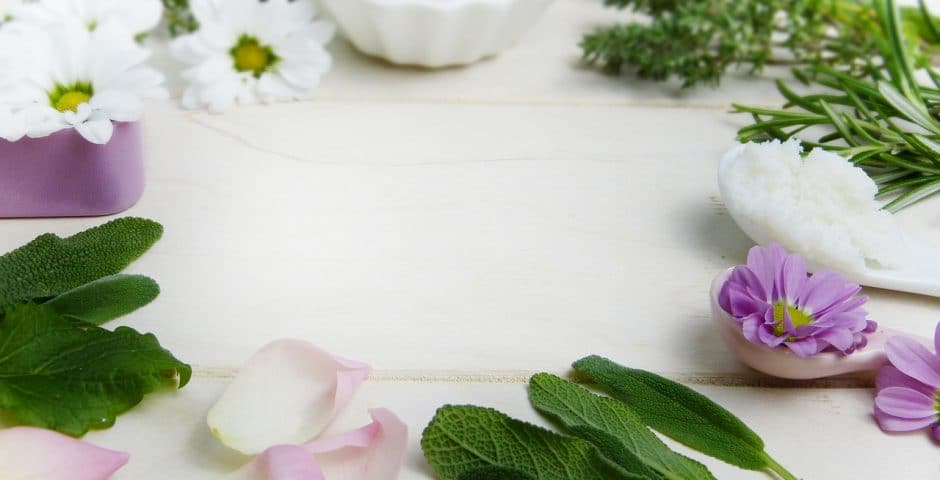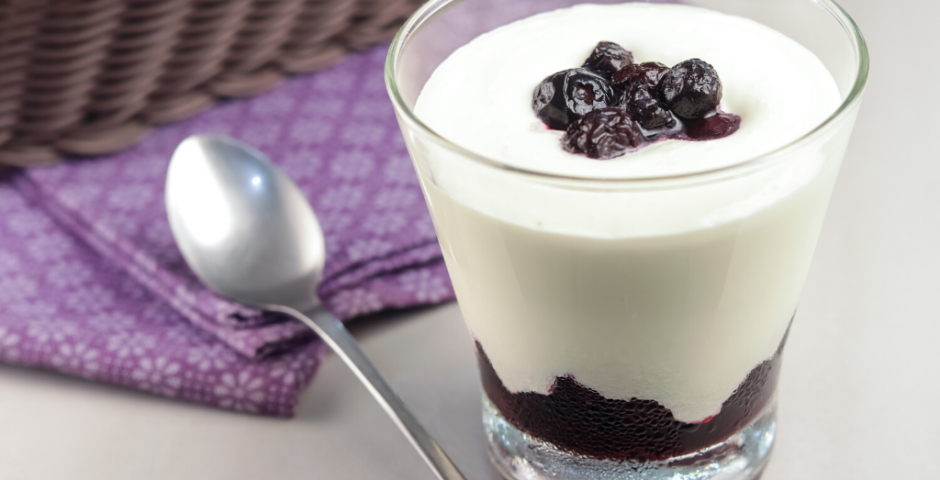
8 Germ Fighting Essential Oils – To Boost Immunity
Best Germ Fighting Essential Oils – Derived from Common Garden Herbs
If you want to fortify your body against viruses and bacteria that invade, attack, and cause a host of unpleasant and inconvenient symptoms, then you might consider essential oils as a way to boost your immunity this cold and flu season.
Remember that essential oils come from plants – often herbs, flowers, seeds, stems and bark. Some plants are better than others at warding off bacteria, viruses, fungi and other pathogens. Let’s use companion gardening to put this into perspective and fully understand it.
Organic gardeners know that certain, strongly scented herbs and flowers actually repel bugs and disease. For example, planting basil next to your tomatoes may help strengthen the plants and ward off invaders. Other companion herbs that protect plants against diseases and pests include rosemary, sage, thyme, and oregano.
Sure, enough, many of the same plants that afford gardeners chemical-free protection of their growing vegetables also offer protection to humans by arming their immune systems against viruses and bacteria. Rosemary oil, thyme oil, and oregano oil are among the most powerful, illness-fighting, immune-boosting essential oils you can find.
Because these essential oils are so strong, you will likely have to adjust the ratio if you are preparing EO blends using these powerful germ fighters and illness busters. It only takes a few drops of the strongest-smelling oils, which also happen to be the most potent and powerful, to elicit the desired effects.
Sage oil, while it is available for purchase, may be risky in personal applications as it is known to be toxic to the body. You can safely use Clary sage oil in your diffuser as well as massage it into the skin.
1) Rosemary Oil as an Immune Booster
Rosemary oil is analgesic, antibacterial, anticancer, anticatarrhal, antifungal, anti-inflammatory, antioxidant, and expectorant in nature.
In addition to fighting cold and flu viruses and bacterial, rosemary oil will reduce inflammation in the body. Chronic inflammation is the immune system over-reacting, which slowly wears down the body’s ability to fight infections such as cold and flu germs, when they become present. So if you reduce inflammation, you can help your body regain immune response and arm yourself against cold and flu.
An expectorant helps the body expel mucous, which helps get rid of colds faster. Rosemary oil can therefore help you get over a cold more quickly if used as a method of cold relief.
According to Valerie Ann Worwood, the author of The Complete Book of Essential Oils and Aromatherapy, a blend of rosemary, lemon and eucalyptus oils can massaged into the facial sinus areas, including bridge of the nose, cheekbones, temples to relieve sinus congestion and speed healing from a cold virus.
2) Clary Sage Oil as an Immune Booster
Clary sage essential oil is antidepressant, anticonvulsive, antispasmodic, antiseptic, aphrodisiac, astringent, bactericidal, carminative, deodorant, digestive, emmenagogue, euphoric, hypotensive, nervine, sedative, stomachic and a tonic for the uterus.
Clary sage oil is notorious for being a hormone balancer. In addition to this, it also imparts relaxation and healing to the entire body. It is a much safer option that regular sage oil, which is known to an excitant that is potentially toxic and can trigger miscarriage and epileptic seizures.
Clary sage oil offers anti-inflammatory benefits that will help an over-active immune system return to a balanced state, so that your body will have an easier time getting over cold and flu germs. And with expectorant–disinfectant and antibacterial activity to boot–you will be greatly boosting your body’s infection fighting ability when you add powerful sage to your arsenal of essential oils for immune health.
3) Thyme Oil as an Immune Booster
Thyme oil is possibly the most powerful of the essential oils known to fight germs. In fact, the ingredient “Thymol” which appears in environmentally friendly cleaning products is a chemical derivative of thyme oil.
Thyme oil is known to be antispasmodic, antirheumatic, antiseptic, bactericidal, bechic, cardiac, carminative, cicatrisant, diuretic, emenagogue, expectorant, hypertensive, insecticide, stimulant, tonic and vermifuge.
To read more about this powerful oil go to: 21 Incredible Health Benefits of Thyme Essential Oil | Organic Facts
The first clue of thyme oil’s great healing and cleansing abilities is its strong, unpleasant odor. When you pop open your bottle of thyme essential oil, you will most likely cringe and recoil in horror. In fact, the oil is so potent that it almost resembles motor oil, and you may be hit with its fumes before it’s even out of the box.
4) Oregano Oil as an Immune Booster
Oregano oil delivers immune bolstering power through just a drop or two of this powerful plant.
Healing properties of oregano oil include its being antibacterial, antifungal, antioxidant, anti-inflammatory, antibiotic, and antiviral in nature.
For more information about this oil go to: 15 Oregano Oil Uses & Benefits for Your Health
Oregano’s two main germ-fighting derivatives are thymol (also present in thyme oil, and the odor of these two plants happens to be very similar), and the phenol carvacrol. People who are phenol-reactive may wish to err on the side of caution when using oregano essential oil in personal applications. Use at your own risk.
5) Basil Oil as an Immune Booster
Basil oil goes to work fighting disease and protecting the body through its analgesic, antidepressant, antispasmodic, anti-venomous, carminative, cephalic, diaphoretic, digestive, emmenagogue, expectorant, febrifuge, insecticide, nervine, stomachic, sudorific, tonic and stimulant properties.
For more information go to: 11 Amazing Benefits Of Basil Essential Oil
Even More Germ Fighting Essential Oils – Derived from Popular Kitchen Spices
Warming spices are pretty much a given in any good cook or baker’s pantry. These include cinnamon, ginger, clove, nutmeg and cardamom. But did you know that in addition to adding that comforting, spicy aroma and flavor to your favorite baked goods and recipes, the warming spices all impart amazing healing benefits? You can reap these benefits, especially during cold and flu season, by incorporating the essential oil form of these spice plants, into your daily repertoire.
It only takes a few drops of warming spice oils to deliver a big burst of immune benefits to your body. You will know by the powerful aroma that’s apparent immediately, just how amazingly potent and effective oils like cinnamon and clove really are. In fact, clove oil has been used for centuries to disinfect the mouth and numb toothaches.
6) Clove Oil as an Immune Booster
Clove oil is known to be antimicrobial, antifungal, antiseptic, antiviral, aphrodisiac, and stimulating. It’s so powerful that if you use clove oil for popular dental applications such as to ease the pain of a toothache, don’t be alarmed if you begin to feel that tingly sensation of your lips going numb as this oil quickly takes action.
In addition to clove (as a spice) being one of the healing ingredients that you can add to a homemade chai blend use to prepare the body to do battle against cold germs, you can also use clove essential oil in aromatherapy and skin applications.
Please be aware that as a warming spice that also works to speed up heart rate and breathing, clove can be overwhelming to some sensitive individuals and should be used with caution. If you are prone to skin reactions, you may choose to avoid using clove on the skin, especially sensitive areas.
For more information: 30 Surprising Benefits Of Clove Oil
7) Cinnamon Essential Oil as an Immune Booster
Cinnamon oil is analgesic, antiseptic, antibiotic, antispasmodic, aphrodisiac, astringent, cardiac, carminative, emmenagogue, insecticide, stimulant, stomachic, tonic and vermifuge.
There are two types of cinnamon essential oil available for aromatherapy and personal use. One is the more potent cinnamon bark oil, which should be used with caution as high levels can be toxic and even result in convulsions. Cinnamon leaf oil is the non-toxic and more popular version.
Cinnamon oil is well known for delivering healing benefits to the body that facilitate quick recovery from cold and flu viruses. It is known to fight bacteria, heal infections, calm the nervous system, purify the intestines, fight intestinal yeast, purify the blood and much, much more.
Care should be used with cinnamon oil, as a small amount goes a long way and it can be over-stimulating or produce skin reactions in sensitive individuals. Avoid using cinnamon oil on or near the mucous membranes.
8) Nutmeg Oil for Immune Boosting Benefits
Nutmeg oil is surprisingly effective as an immune booster – offering the following properties to fuel the body against illness and disease: antiseptic, digestive, laxative, emmenagogue, analgesic, anti-rheumatic, stimulant, carminative, antispasmodic, parturient, tonic, sedative, bactericide, anti-inflammatory and relaxant.
If you have the misfortune of contracting the flu this winter, look to nutmeg oil for a litany of lesser-known but nevertheless powerful immune-boosting benefits. This miraculous oil is known to fight infection, reduce fever, relieve pain, ease asthma, soothe the digestive system, steady the nerves and much more.
Nutmeg is high in magnesium so it can provide relief from flu-related joint and muscle aches as it relaxes the muscles and soothes the nerves.
If your cold and flu symptoms are keeping you up at night, try nutmeg essential oil in your cold-relief diffuser blend as a way to promote a restful night’s sleep so that healing can begin.
“This information is not meant to serve as medical advice. If you have any concerns or are experiencing symptoms of any kind, please consult with your physician.”








